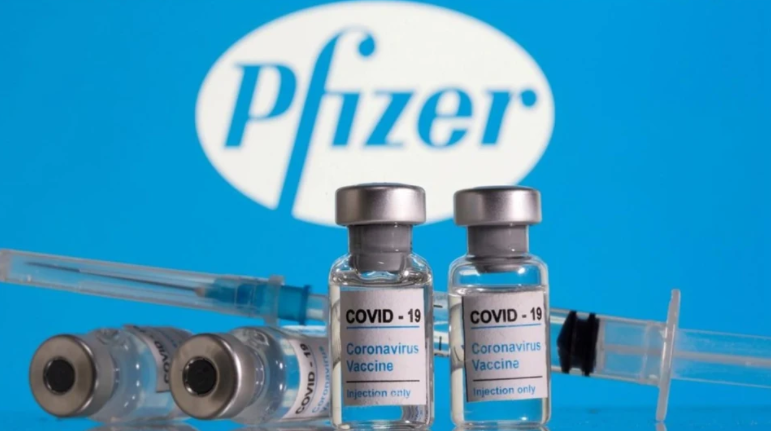The Therapeutic Clinic of the Medical School of EKPA, from the beginning of the vaccinations of the Greek population, started an extensive prospective study to record the immune response to the vaccination against SARS-CoV-2. Specifically, the purpose of the prospective study NCT04743388 carried out at "Alexandra" hospital is to evaluate the kinetics of antibodies against RBD of Spike protein (S-RBD) and neutralizing antibodies (NAbs) against SARS-CoV-2 virus in healthy people, over 80 years, and patients with neoplastic disease after vaccination with Pfeizer / BioNTech BNT162b2 (ComirnatyTM) mRNA vaccine. The results so far have been published in the form of 20 articles in reputable international journals. In the most recent publication, the researchers presented the results to the health workers and employees of GNA "Alexandra" three months after they were fully vaccinated with the Pfeizer / BioNTech vaccine. These data were published in the prestigious international Swiss magazine Cells, and are summarized by the Professors of EKPA Evangelos Terpos, Ioannis Trougakos and Thanos Dimopoulos (Rector of EKPA).
The study involved 286 health workers and hospital staff (median age 48 years) without known malignant disease undergoing chemotherapy or end-stage renal disease. Antibody assay was performed by US FDA approved methods: Elecsys Anti-SARS-CoV-2 S assay (Roche Diagnostics GmbH, Mannheim, Germany) for the measurement of IgG antibodies against S-RBD virus and cPass ™ SARS -CoV-2 NAbs Detection Kit (GenScript, Piscataway, NJ, USA) for measuring NAbs. Antibodies were determined on days 1 (D1, before the first dose of the vaccine), D8, D22 (before the second dose of the vaccine), D36 (two weeks after the second dose), D50 (four weeks after the second dose) and 3 months after the second dose.
Neutralizing antibody values
(NAbs), they showed a significant increase in D22 and reached their maximum value after the second dose (D36), showing a growth rate of 3% per day and reaching an average value of 97,2% of virus neutralization on day 36, ie two weeks after the second dose of the vaccine. NAbs values remained high at D50 (median neutralization value ≥95%) as well as 3 months after the second dose of vaccine (median neutralization value 92,7%). Despite a small drop in NAbs after the second week of full vaccination, which stood at 0,11% per day, more than 95% of those vaccinated had very high titers of the virus approximately 4 months after the start of vaccination.
The increase in antibody titer was of a smaller order of magnitude in subjects aged 51-70 years compared with those aged 20-50 years, at all times of the measurements.
These results show the high efficacy of the vaccine, as 4 months after the first dose of the vaccine, almost all healthy study participants had very high levels of protection against COVID-19. To the question of the duration of neutralizing antibodies after vaccination, judging by the results in Greek patients who became ill with COVID-19, and 75% retained the neutralizing antibodies for at least 8 months after the first symptom, we believe the antibodies from the vaccine will last for at least a year. This is due to the fact that vaccinated people develop neutralizing antibody titers much higher than those of patients with COVID-19 and they needed hospitalization, while their rate of decline is low.
In addition, these data suggest that our healthy fellow citizens do not need to have antibody tests, as the chance of not having developed high titers is almost zero.
The study of the Therapeutic Clinic of EKPA will continue with the study of all vaccines and their effectiveness up to 18 months after their first dose.
Source: Protothema.gr
